Latest News
190 cases of women’s murder registered in 6 months
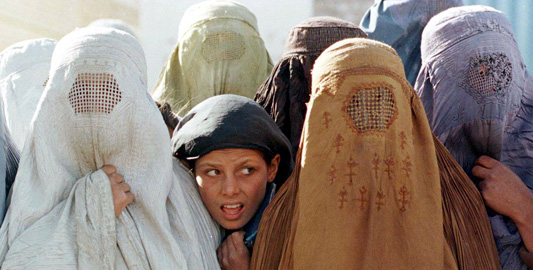
Around one hundred and ninety cases women’s murder from all across the country have been filed with the Afghanistan Independent Human Rights Commission (AIHRC) during the first six months of the current year.
AIHRC officials called the latest statistics as “shocking” and expressed concerns that majority of similar cases have not been recorded due to strict traditional sensitivities.
The commission declared that among them nearly 101 cases of them were honor killings.
According to AIHRC findings, nearly 2580 cases of violence were committed against Afghan women in the first six months of the current year.
“Violence against women had a remarkable increase in the past six months and statistics show that 2579 cases of violence against women have been registered which is separated from suicide and self-immolation,” said Qadira Yazdan Parast, commissioner of AIHRC.
The Human Rights Commission voiced concern over lack of the implementation of the Law on Elimination of Violence against Women, citing most of government officials ignore such cases to address.
“The issue of public indifference to the implementation of the Law on Elimination of Violence against Women should seriously be considered,” Yazdan Parast noted.
According to the registered statistics of the last six months:
2579 cases of violence committed all across the country which among them, 190 cases were women’s murder, 731 cases shows physical violence.
900 cases registered on verbal and psychological violence against women and 550 cases of economic violence were recorded.
Close to 183 cases were sexual violence and 215 cases were registered on family violence which is a large number.
The findings also show that 15 percent of honor killing and rape were committed by Afghan police officers.
Afghanistan has been one of the worst countries in the world to be born female.
Violence against women is endemic; girls attend school for less than half the number of years of Afghan boys, and one in every thirty-two women die from pregnancy-related causes.
Afghan women continue to experience poor health, limited economic opportunities, lack of education, an absence in participation in public life and all forms of violence.
In the meantime, Afghanistan’s first lady expressed concern over increase of violence against women; emphasizing that roots of violence should dried in the country.
The country’s first lady, Rola Ghani demands Afghans to start fight against elimination of violence against women.
“We should keep continued fighting for the elimination of violence against women and promote the culture of peace among people,” said Rola Ghani, Afghanistan’s first lady.
The minister of women affairs has said to consider Afghan women are caught in the vortex of cultural poverty and have little role in the labor market.
“We strive on women’s mentality and achieving of them to justice,” said Delbar Nazari, minister of women’s affairs.
President’s special envoy for reforms and good governance, Ahmad Zia Masoud has also noted that an attitude against women is disturbing and this culture must be changed.
Despite efforts the violence against Afghan women still continues and the perpetrators are not taken serious.
The four decades of prolonged armed conflict across the country has contributed to significant levels of instability, insecurity, violence, rule of law challenges, and poverty and underdevelopment, which have obstructed the effective realization and enjoyment of human rights for people of Afghanistan.
It must be stressed that the insecurity, pervasive levels of gender-based violence and an ever-present climate of fear has had a disproportionate impact on the promotion, protection and fulfillment of human rights of women and girls.
The struggle to secure women’s rights in Afghanistan has been an embattled one. After years of faltering campaigns, the landmark Elimination of Violence against Women Act (EVAW) was passed in 2009 by presidential decree.
The 2009 act marked a major turning point in the legal status of Afghan women. Before the EVAW was passed, cases of violence against women were governed by Afghanistan’s penal code, in force since 1976, which contains no reference to violence within the family or underage marriage.
Even these scant legal protections were illusory during Taliban rule, when women were denied free movement and access to education and when women were even stoned to death.
Since then, Afghanistan has signed numerous international rights treaties and as a signatory is obliged under international law to respond to reports of attacks on women.
Reported by Rafi Sidiqi and Fawad Naseri
Written by Muhammad Zakaria

Latest News
Iranian official: Only vulnerable points of Afghanistan’s border will be walled and fenced
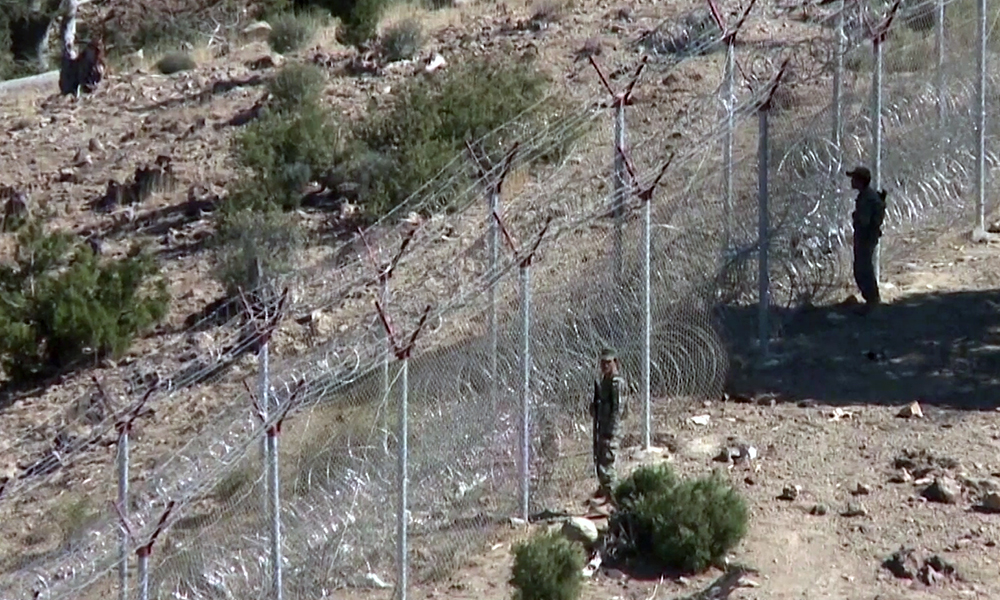
An Iranian security official has said that the entire border of Iran with Afghanistan will not be fenced, rather barriers will be created only at vulnerable points.
Iranian army has announced that the plan to create barriers at the border with a four-meter concrete wall, barbed wire and fence will be implemented within three years.
“In some northwestern and eastern borders, there are threats from the other side of the borders that we are countering,” said Qassem Rezaei, Iran’s deputy police commander.
He added that drug trafficking, human trafficking, and even terrorist infiltration may take place through these borders.
Meanwhile, the Minister of Interior of Iran Ahmad Vahidi has announced that over 1.3 million illegal foreign nationals have returned to their country in the past year.
He added that illegal citizens should leave Iran as they are not allowed to stay.
Latest News
Hanafi meets WHO regional director, stresses need for cooperation
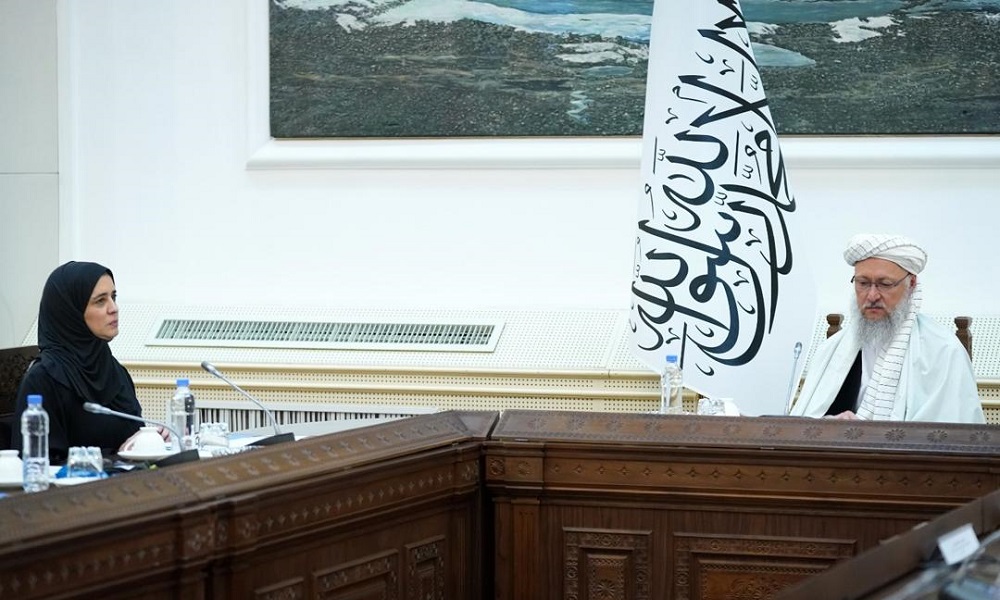
Deputy Prime Minister for Administrative Affairs Abdul Salam Hanafi on Sunday met with WHO Regional Director for the Eastern Mediterranean, Hanan Balkhy, and called for the organization’s cooperation including in the establishment of clinics in remote areas and training of specialists.
According to a statement released by his office, Hanafi pointed out that since the Islamic Emirate in Afghanistan regained power, there has been progress in various fields, including the fight against drug production and trafficking, the roundup and treatment of drug addicts, the eradication of corruption and nationwide security.
He asked the WHO to hand over Afghanistan’s seat to the representative of the Islamic Emirate and restore Afghanistan’s membership in meetings of the executive board and leadership meetings of the Mediterranean region.
Hanafi also called for the cooperation of international organizations in providing alternative livelihoods for poppy farmers and in providing assistance to flood victims.
While stressing that the eradication of polio is one of the priorities of the Islamic Emirate, Hanafi asked the WHO to activate polio diagnosis laboratories and supply vaccines, establish a cancer treatment center, prevent malnutrition among children and provide safe drinking water.
According to the statement, WHO official Balkhy said in the meeting that the health issue is non-political and one of the priorities of the organization.
She pointed to the achievements of the Islamic Emirate in various fields and expressed hope that better conditions will be provided for Afghans in the health and education sector.
Balkhy explained that WHO, together with other international organizations and the European Union, has a three-year project that includes the establishment of health centers in different provinces of Afghanistan.
She also expressed her appreciation for the efforts of the Islamic Emirate in the fight against polio and added that she will discuss the issue of providing alternative livelihoods for Afghan farmers with the WHO and other relevant organizations.
Latest News
OIC summit urges IEA to respect girls’ right to education
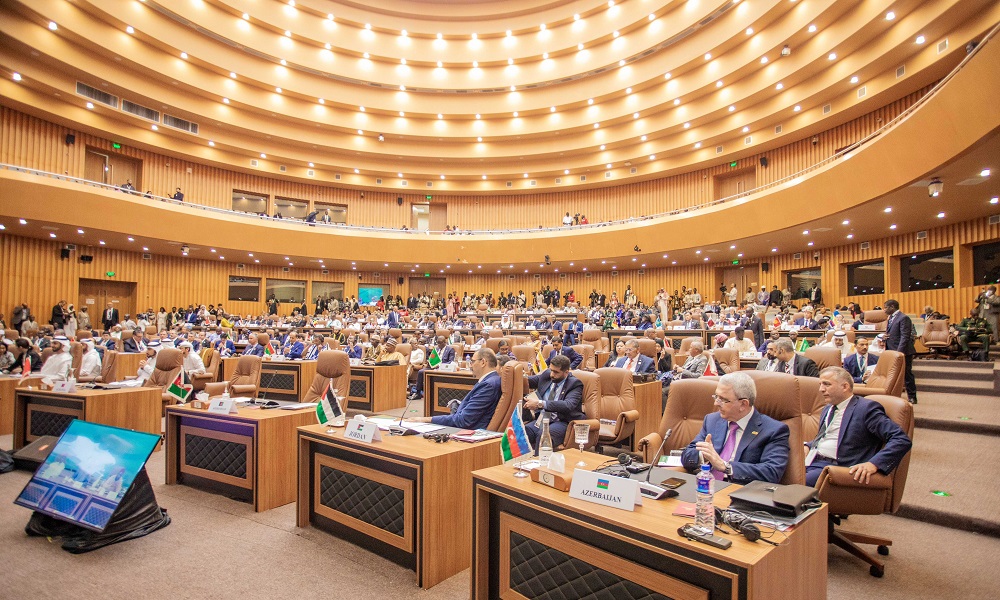
The 15th summit of the Organization of Islamic Cooperation (OIC) in Gambia on Sunday called on the Islamic Emirate of Afghanistan (IEA) to respect Afghan girls and women’s right to education and work.
In a declaration, OIC described the right to education and work as the fundamental rights of Afghan girls and women, and called for more communication with the IEA authorities on these issues.
Additionally, the participants emphasized the need for more efforts to address the challenges related to ethnic groups, drugs, terrorism, and social issues to ensure inclusive governance and sustainable peace and stability in Afghanistan.
“We also emphasize the need to make more efforts to address the challenges associated with ethnic groups, terrorism, drugs and social aspects for inclusive governance to achieve sustainable stability,” the declaration said.
Delegations from the 57 OIC member states attended the conference, organized by the Organization of Islamic Cooperation under the theme “Enhancing unity and solidarity through dialogue for sustainable development.”.
The summit was also attended by an IEA delegation.
-

 Sport4 days ago
Sport4 days agoSorkh Poshan Khafi and Khadim FC winners in their ACL matches
-
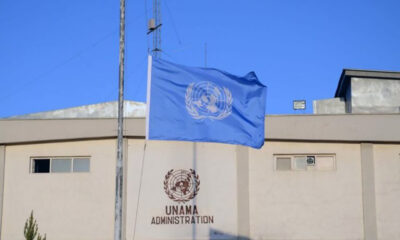
 Latest News4 days ago
Latest News4 days agoUNAMA issues latest rights report, notes ongoing challenges for women, girls and media
-
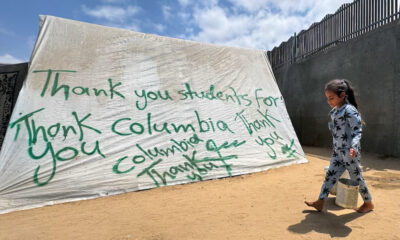
 World4 days ago
World4 days agoWhy Palestinians can count on American students but not Arab allies to protest
-

 Sport4 days ago
Sport4 days agoAbu Muslim and Attack Energy win in ACL matches
-

 Sport4 days ago
Sport4 days agoBairstow, Rossouw help Punjab beat Chennai in IPL
-

 Sport4 days ago
Sport4 days agoFour Afghans included in Refugee Olympic Team for Paris 2024
-

 World4 days ago
World4 days agoCalifornia police flatten pro-Palestinian camp at UCLA, arrest protesters
-

 Latest News4 days ago
Latest News4 days agoFive dead, 24 injured in traffic accident in Samangan
















